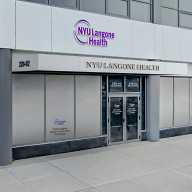With the deadline for filing its report on how to reduce traffic congestion in Manhattan only two weeks away, debate over new alternatives has continued to heat up.
The New York Traffic Mitigation Commission recently released a 72-page report outlining five options to reduce congestion - including Mayor Michael Bloomberg’s original proposal - and the panel is still listening to feedback before it makes its final recommendation to the state and city by Thursday, January 31.
The interim report discussed four plans including:
Meanwhile, Bloomberg’s original proposal, which would charge car drivers $8 and trucks $21 to enter Manhattan south of 86th Street on weekdays from 6 a.m. to 6 p.m. in an attempt to decrease congestion in the central business district as well as improve air quality in the area, is also still an option.
City Councilmember David Weprin, who is the chair of the council’s finance committee as well as an outspoken critic of any congestion pricing idea, said that instituting the tolls on the East River bridges is an idea that Bloomberg’s administration floated around back in 2002.
“It is interesting that as talks of budget woes ahead begin - due to the mortgage crisis, the decline in the housing market and less than a stellar year on Wall Street - the proposal of tolling the four bridges pops its ugly head again,” Weprin said.
Currently, city residents oppose Bloomberg’s congestion pricing proposal by a 58-37 percent margin, and they disapprove of tolls on East River bridges by a wider 69-25 percent margin, according to a recently released Quinnipiac University poll.
“Traffic is a horrendous problem, New Yorkers agree,” said Quinnipiac University Polling Institute Director Maurice Carroll. “But, they reject all ideas that are being talked about to erase it. Voters remain firm in their opposition to congestion pricing, but they would support it if - IF - the money is used to improve mass transit.”
In Queens, 58 percent of the respondents said they opposed congestion pricing while 36 percent support it, yet if the money would be used to improve mass transit 61 percent from Queens would support the plan.
However, former city councilmember and chief spokesperson for Keep NYC Congestion Tax Free, Walter McCaffrey, said that there are still too many unanswered and some unanswerable questions regarding all of the plans.
McCaffrey pointed out there would be no legal guarantee to ensure all of the revenue generated from any program would be new funding that goes towards mass transit, and raised the specter of whether an Environment Impact Study (EIS) would have to occur for the alternatives as well as questions about park and ride facilities and residential parking permits.
“After months of discussion these should have been resolved,” McCaffrey said.
The New York Traffic Mitigation Commission will continue to hold public hearings next week to seek input before it makes its final recommendations to the state legislature and city council on January 31.





























